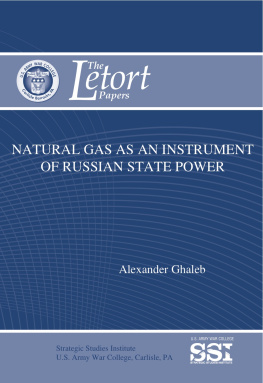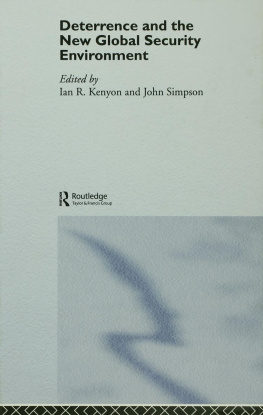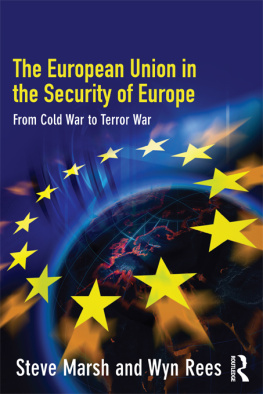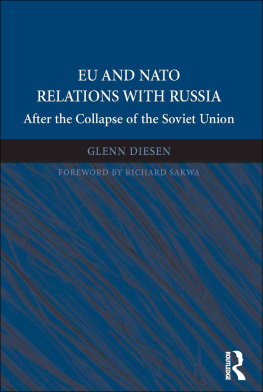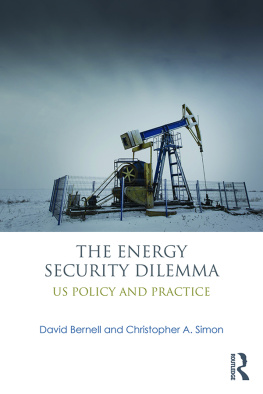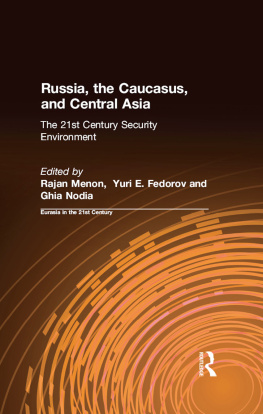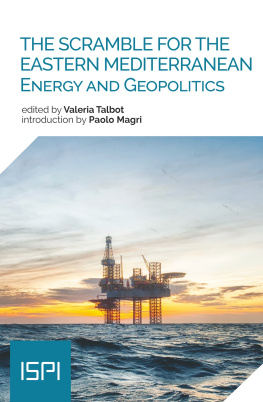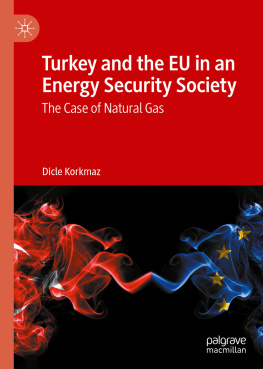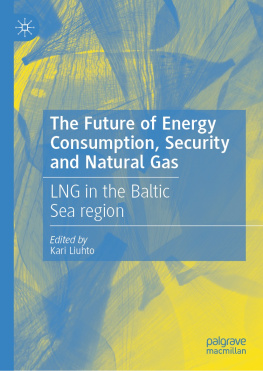Letort Paper
NATURAL GAS AS AN INSTRUMENT
OF RUSSIAN STATE POWER
Alexander Ghaleb
October 2011
The views expressed in this report are those of the author and do not necessarily reflect the official policy or position of the Department of the Army, the Department of Defense, or the U.S. Government. Authors of Strategic Studies Institute (SSI) publications enjoy full academic freedom, provided they do not disclose classified information, jeopardize operations security, or misrepresent official U.S. policy. Such academic freedom empowers them to offer new and sometimes controversial perspectives in the interest of furthering debate on key issues. This report is cleared for public release; distribution is unlimited.
*****
This publication is subject to Title 17, United States Code, Sections 101 and 105. It is in the public domain and may not be copyrighted.
*****
Comments pertaining to this report are invited and should be forwarded to: Director, Strategic Studies Institute, U.S. Army War College, 632 Wright Ave, Carlisle, PA 17013-5046.
*****
The author would like to express his gratitude to Professor Nicholas Kenney from the National Defense University for his trenchant critiques and guidance during the research and writing stages of this monograph. I am also grateful to the office of United States Senator Richard Lugarand particularly to Marik String, Senator Lugars Professional Staff Member for European and Eurasian Affairs, Committee on Foreign Relationsfor encouraging me to examine Russias use of natural gas as an instrument of coercion.
This monograph was made possible by conversations and interviews with a large number of energy security experts, energy professionals, natural gas lobbyists, and policymakers from both the United States and the European Union. Particular thanks to Alan HegburgSenior Energy and National Security Fellow at the Center for Strategic and International Studiesand Rosemary KelanicInternational Security Research Fellow at the Harvard Kennedy Schoolfor helping me to better understand when oil and natural gas can or cannot be used as an instrument of coercion. Also to Vladimir LefebvreSenior Fellow at the Center for Advanced Defense StudiesDr. Jennifer JefferisProfessor of International Security Studies and Kenneth BakerDistinguished Professor and Department of Energy Chair at the College of International Security Affairs at the National Defense Universityand his research assistant, James Windle, for their early endorsement of my focus on Russian reflexive control.
Furthermore, Robert CekutaU.S. Department of State Deputy Assistant Secretary for Energy, Sanctions and Commoditiesand Edward ChristieResearch Partner with the Pan-European Institute (PEI) of the Turku School of Economics (Finland)were instrumental in my understanding of the energy security challenges faced by the European Union. I am also grateful to the numerous energy-related lobbying groupsand particularly to the members of the World LP Gas Association for allowing me to attend their WLPGA North America/Europe Summit free of chargethey were very eager to enhance my knowledge with regard to both the advantages and dangers of fossil fuels, and to Dr. Charles EbingerDirector of the Energy Security Initiative at the Brookings Institutionwho taught me a very important lesson about remaining objective when talking to lobbyists.
Finally, I would like to extend my gratitude to a certain senior oil and gas executive from Doha, Qatar, Mark TrgovichMarketing Director at Qatar International Petroleum Marketing Companywho took precious time away from his incredibly busy schedule to educate me about the geostrategic significance of natural gas in the contemporary security environment; and to all the government agencies and private companies that offered me a job while I was conducting research for this monographI hope your offers are still on the table when my military contract expires in January 2014.
*****
All Strategic Studies Institute (SSI) publications may be downloaded free of charge from the SSI website. Hard copies of this report may also be obtained free of charge while supplies last by placing an order on the SSI website. The SSI website address is: www.StrategicStudiesInstitute.army.mil .
*****
The Strategic Studies Institute publishes a monthly e-mail newsletter to update the national security community on the research of our analysts, recent and forthcoming publications, and upcoming conferences sponsored by the Institute. Each newsletter also provides a strategic commentary by one of our research analysts. If you are interested in receiving this newsletter, please subscribe on the SSI website at www.StrategicStudiesInstitute.army.mil / newsletter/.
ISBN 1-58487-510-0
FOREWORD
The slow re-emergence of Russia as a world power despite its weak military force is of critical significance for the strategic interests of the United States in Europe. Since the Cold War, Russia has been perceived as a broken nation that no longer represents a threat to the North Atlantic Alliance. This monograph emphasizes that Russia overcame this major vulnerability by developing the capacity to use unilateral economic sanctions in the form of gas pricing and gas disruptions against many European North Atlantic Treaty Organization (NATO) member states. It agrees with many scholars and politicians alike who fear that Russia will leverage its monopoly of natural gas to gain political concessions. The author suggests it is only a matter of time until Russia will use natural gas as an instrument of coercion to disrupt NATOs decisionmaking process.
A key aim of this monograph is to explain why the rapid global transition from oil to natural gas will redefine the way policymakers and strategic security scholars look at the scarcity of natural gas in Europe. What is unique about this monograph is that it analyzes the oil and gas markets separately and illustrates, with examples, why in Europe natural gas is a more potent instrument of coercion than oil. Despite these revelations, only 1 month after the German Government announced its plans to abandon nuclear power by 2022, in July 2011 German Chancellor Angela Merkel disclosed that Germany will need to import more Russian natural gas to make up for the loss of over 10 gigawatts of generation capacity. Almost simultaneously, Germanys largest energy utilities group, RWE, and the Russian state-controlled gas giant, Gazprom, have agreed to form a strategic partnership. The author argues that situations like these create a delicate state of affairs that will ultimately undermine the de facto power of NATO in the contemporary security environment, particularly vis--vis Russia, unless the dependency on Russian natural gas is promptly addressed.
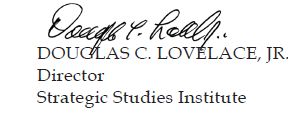
ABOUT THE AUTHOR
Alexander Ghaleb is a U.S. Army captain with several assignments to infantry, military intelligence, and special operations positions. Captain Ghaleb has written several articles dealing with issues related to national security. He has studied at top European universities in Germany, France, and Hungary. Captain Ghaleb holds a B.BA. in international business from the George Washington University, an M.A. in strategic security studies from the National Defense University, and he is an energy security Ph.D. student in the Department of Environmental Sciences and Policy at the Central European University.
SUMMARY
The nation that leads on energy will be the nation that leads the world.
David Sandalow
The Brookings Institute
The potential for natural gas is enormous.

